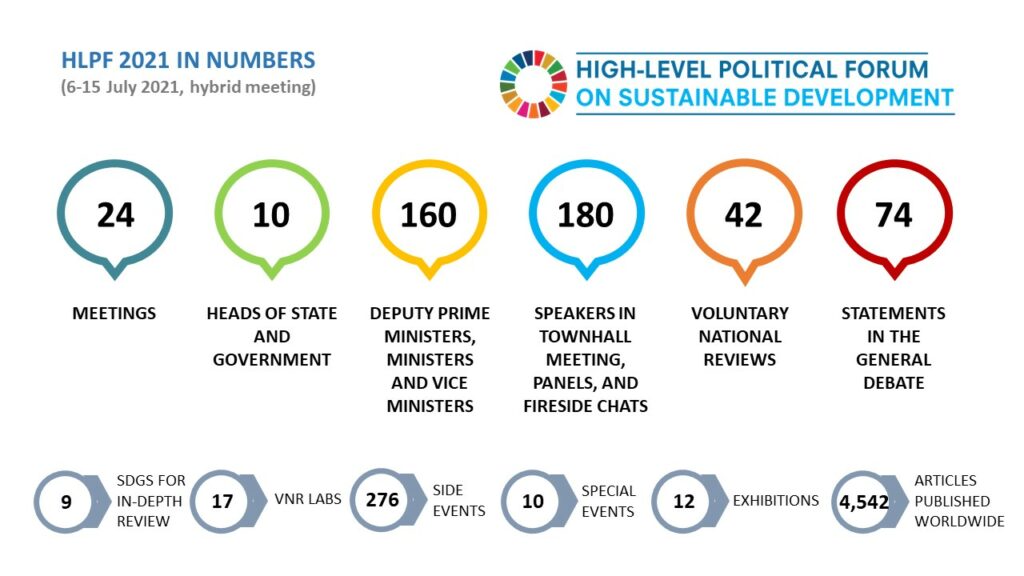Geneva: 2021 ECOSOC High-level Segment

Published: 16 July 2021
The Investment Migration Council as an Organisation in Special Consultative Status with the Economic and Social Council of the United Nations since 2019, made a public statement concerning investment migration at the High-level United Nations Political Forum (HLPF) held between the Tuesday, 6 July, to Thursday, 15 July 2021, under the auspices of the Economic and Social Council. This included a three-day ministerial meeting of the forum from Tuesday, 13 July, to Thursday, 15 July 2021.
The high-level political forum on sustainable development (HLPF) is the core United Nations platform for follow-up and review of the 2030 Agenda for Sustainable Development and its 17 Sustainable Development Goals.
The HLPF in 2021 discussed Sustainable Development Goals 1 on no poverty, 2 on zero hunger, 3 on good health and well-being, 8 on decent work and economic growth, 10 on reduced inequalities, 12 on responsible consumption and production, 13 on climate action, 16 on peace, justice and strong institutions, and 17 on partnerships in depth. The Forum also considered the integrated, indivisible and interlinked nature of the Sustainable Development Goals.

Ministers and other participants were able to explore various aspects of the response to the COVID-19 pandemic and its impacts. They discussed the kind of policies and international cooperation that can control the pandemic and its impacts and put the world back on track to achieve the SDGs by 2030, within the decade of action and delivery for sustainable development.
The statement is re-produced below:
On behalf of the Investment Migration Council, our members and stakeholders, I ask the Economic and Social Council to consider the economic and social contribution that investment migration can make in the post-Covid 19 environment and to join our efforts in advocating for a concise regulatory framework with strict minimum standards across all countries with investment migration programmes. Investment migration refers to obtaining citizenship or residential rights by individuals in return for a financial investment or other contributions to the host country. In addition to increased employment opportunities driven by investment ̶from manufacturing and technology to construction and tourism ̶ funds generated by investment migration are largely used by national states in line with United Nations Sustainable Development Goals. Flows coming from investment migration programmes have increased public sector revenues, particularly in small states, helping to improve core infrastructure, education, and health services as shown in research done by Dr Andrés Solimano in a more recent Report on ‘Investment Migration, Economic Development and the [United Nations] Sustainable Development Goals’ issued in cooperation between the Investment Migration Council and the International Centre for Globalisation and Development. Most importantly, investment migration provides countries with an opportunity to increase capital inflows without having to increase their internal or external debt. Instead, investments provide direct capital injections of non-debt liquidity to national balance sheets, strengthening thus national economies and narrowing down the gap created by inequalities within and between nations. These days, the entire world faces one of the biggest economic crises known in peaceful times owing to COVID-19. Investment migration is positioned to make a very positive and lasting economic difference by brining fresh funds, new skills and entrepreneurial capacities to receiving economies. To have this desired economic effect, the Economic and Social Council need to act swiftly to recognise the financial impact of investment migration and encourage both investments through investment migration programmes and the adoption of a common regulatory framework. We share the concerns of different observers of the inherent risk in any industry that is based on a constant flow of multi-million financial transactions. The Investment Migration Council has put as a first priority the strengthening of due diligence standards in the investment migration process, carried-out at all relevant levels and by all parties. It is of particular importance, however, to have the support and assistance of the Economic and Social Council to increase the probability of success in this endeavour. Working together we could come closer to achieving the United Nations Sustainable Development Goals while strengthening the minimum strict standards across all countries
For more information on the HLPF please visit: https://sustainabledevelopment.un.org/hlpf/2021#intro
For access to the published IMC statement please see pg 361, agenda item 247: 2021-ECOSOC-HLS-Written-Statements-by-NGOS-in-ECOSOC-Consultative-Status.pdf (un.org)

